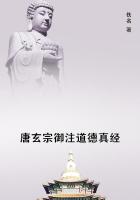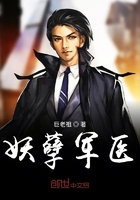Rudolf fixed his eyes firmly on Sapt's.
"You see," he said, "the king reaches his hunting-lodge early in the morning."
"I follow you, sire."
"And what happens there, Sapt? Does he shoot himself accidentally?"
"Well, that happens sometimes."
"Or does an assassin kill him?"
"Eh, but you've made the best assassin unavailable."
Even at this moment I could not help smiling at the old fellow's surly wit and Rudolf's amused tolerance of it.
"Or does his faithful attendant, Herbert, shoot him?"
"What, make poor Herbert a murderer!"
"Oh, no! By accident--and then, in remorse, kill himself."
"That's very pretty. But doctors have awkward views as to when a man can have shot himself."
"My good Constable, doctors have palms as well as ideas. If you fill the one you supply the other."
"I think," said Sapt, "that both the plans are good. Suppose we choose the latter, what then?"
"Why, then, by to-morrow at midday the news flashes through Ruritania--yes, and through Europe--that the king, miraculously preserved to-day--"
"Praise be to God!" interjected Colonel Sapt; and young Bernenstein laughed.
"Has met a tragic end."
"It will occasion great grief," said Sapt.
"Meanwhile, I am safe over the frontier."
"Oh, you are quite safe?"
"Absolutely. And in the afternoon of to-morrow, you and Bernenstein will set out for Strelsau, bringing with you the body of the king." And Rudolf, after a pause, whispered, "You must shave his face. And if the doctors want to talk about how long he's been dead, why, they have, as I say, palms."
Sapt sat silent for a while, apparently considering the scheme.
It was risky enough in all conscience, but success had made Rudolf bold, and he had learnt how slow suspicion is if a deception be bold enough. It is only likely frauds that are detected.
"Well, what do you say?" asked Mr. Rassendyll. I observed that he said nothing to Sapt of what the queen and he had determined to do afterwards.
Sapt wrinkled his forehead. I saw him glance at James, and the slightest, briefest smile showed on James's face.
"It's dangerous, of course," pursued Rudolf. "But I believe that when they see the king's body--"
"That's the point," interrupted Sapt. "They can't see the king's body."
Rudolf looked at him with some surprise. Then speaking in a low voice, lest the queen should hear and be distressed, he went on:
"You must prepare it, you know. Bring it here in a shell; only a few officials need see the face."
Sapt rose to his feet and stood facing Mr. Rassendyll.
"The plan's a pretty one, but it breaks down at one point," said he in a strange voice, even harsher than his was wont to be. I
was on fire with excitement, for I would have staked my life now that he had some strange tidings for us. "There is no body," said he.
Even Mr. Rassendyll's composure gave way. He sprang forward, catching Sapt by the arm.
"No body? What do you mean?" he exclaimed.
Sapt cast another glance at James, and then began in an even, mechanical voice, as though he were reading a lesson he had learnt, or playing a part that habit made familiar:
"That poor fellow Herbert carelessly left a candle burning where the oil and the wood were kept," he said. "This afternoon, about six, James and I lay down for a nap after our meal. At about seven James came to my side and roused me. My room was full of smoke. The lodge was ablaze. I darted out of bed: the fire had made too much headway; we could not hope to quench it; we had but one thought!" He suddenly paused, and looked at James.
"But one thought, to save our companion," said James gravely.
"But one thought, to save our companion. We rushed to the door of the room where he was. I opened the door and tried to enter. It was certain death. James tried, but fell back. Again I rushed in.
James pulled me back: it was but another death. We had to save ourselves. We gained the open air. The lodge was a sheet of flame. We could do nothing but stand watching, till the swiftly burning wood blackened to ashes and the flames died down. As we watched we knew that all in the cottage must be dead. What could we do? At last James started off in the hope of getting help. He found a party of charcoal-burners, and they came with him. The flames were burnt down now; and we and they approached the charred ruins. Everything was in ashes. But"--he lowered his voice--"we found what seemed to be the body of Boris the hound;
in another room was a charred corpse, whose hunting-horn, melted to a molten mass, told us that it had been Herbert the forester.
And there was another corpse, almost shapeless, utterly unrecognizable. We saw it; the charcoal-burners saw it. Then more peasants came round, drawn by the sight of the flames. None could tell who it was; only I and James knew. And we mounted our horses and have ridden here to tell the king."
Sapt finished his lesson or his story. A sob burst from the queen, and she hid her face in her hands. Bernenstein and I, amazed at this strange tale, scarcely understanding whether it were jest or earnest, stood staring stupidly at Sapt. Then I, overcome by the strange thing, turned half-foolish by the bizarre mingling of comedy and impressiveness in Sapt's rendering of it, plucked him by the sleeve, and asked, with something between a laugh and a gasp:
"Who had that other corpse been, Constable?"
He turned his small, keen eyes on me in persistent gravity and unflinching effrontery.
"A Mr. Rassendyll, a friend of the king's, who with his servant James was awaiting his Majesty's return from Strelsau. His servant here is ready to start for England, to tell Mr.
Rassendyll's relatives the news."













